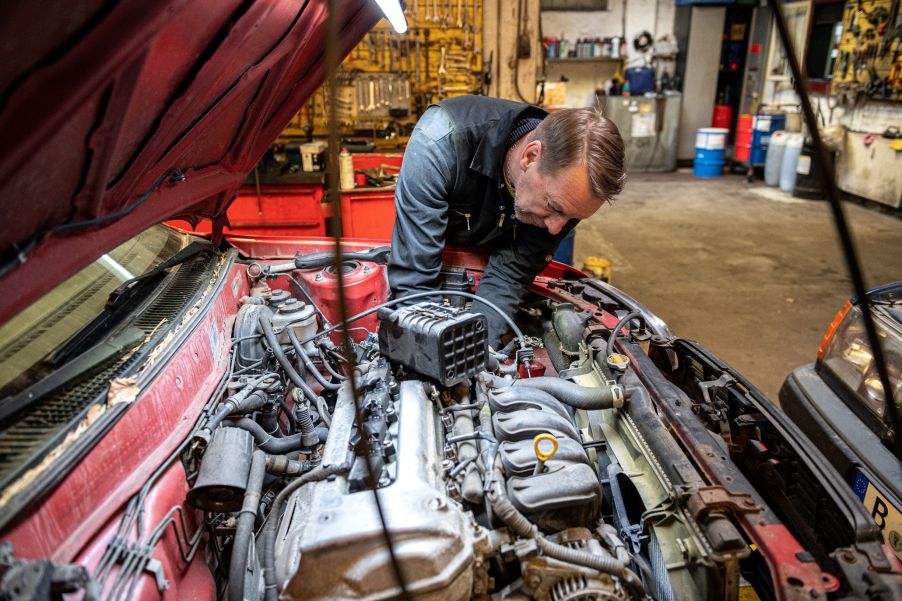
Massachusetts Passes ‘Right To Repair’–What Comes Next?
Torque wrenches and screwdrivers aren’t the only tools you need for maintenance work these days. Modern vehicles’ sensors and various electronics require their own equipment, one that automakers aren’t always willing to give out. Hence why the fight for the ‘right to repair’ is so vital. And it’s a fight that Massachusetts voters recently settled—at least, for now. But what’s going to happen next for the rest of the US?
What exactly does Massachusetts’ ‘right to repair’ law involve?
As we’ve discussed before, ‘right to repair’ is a broad term describing the right for consumers to repair their devices. This ranges from simple electronics to smartphones to tractors and cars, Autoweek explains. It’s a right which was enshrined in Massachusetts law several years ago but was recently expanded upon as a result of the November 2020 elections, Automotive News reports.
The state’s ballots contained, among other things, a proposed piece of legislation called ‘Question 1,’ Road & Track reports. To summarize, this would update Massachusetts’ existing ‘right to repair’ law to cover your car’s telematics data, Engadget explains. Your vehicle’s OBDII port—which can be read by easily-obtainable scanners—provides access to some data, but not all of it. This new law sought to rectify this existing loophole. And it passed with a 75% approval, The Verge reports.

Under the new ‘right to repair’ law, automakers have to create an “open data platform” that’s accessible to third-party shops and mechanics. And the “third-party” designation also includes the vehicle’s owner. That way, these individuals and independent businesses don’t have to get proprietary and expensive tools to properly perform diagnoses and repairs, The Drive explains. The platform must be in place no later than the 2022 model year.
Opponents to the ‘right to repair’ update claimed it could pose a security threat, seeing as this car data is often transmitted wirelessly. It doesn’t help that the FCC will soon vote on potentially splitting a part of the wireless spectrum allotted to automakers off for additional WiFi frequencies, AN reports.
However, as we also pointed out, the car data in question isn’t personal in nature. Telematics doesn’t include personal information, but rather sensor information, The Drive explains.
What about ‘right to repair’ in other states?
Massachusetts may have been a recent hotbed for ‘right to repair,’ but it’s not the only state facing such issues.
In Nebraska, for example, farmers have been turning away from modern John Deere tractors in favor of their vintage, more mechanical versions. Why? Because the electronics in the new models can only be accessed and repaired by a John Deere technician, The Drive explains. That makes repairs expensive and leaves a tractor stranded until a factory tech can swing by. Older tractors, in comparison, are cheaper to run and can be fixed by the farmers themselves. The only other alternative is jail-breaking the tractor with unofficial software, Vice reports.
However, the new ‘right to repair’ law is just for Massachusetts. That doesn’t mean other states couldn’t pass similar laws, or that the standard couldn’t roll out nationwide. But it does mean that automakers are only required to offer this ‘open data platform’ in Massachusetts. The Drive points out that there’s nothing stopping automakers from geo-fencing this feature in the future so it only works there. Plus, the law doesn’t require manufacturers to share data generated prior to the platform’s launch.
How will this impact you?
As of this writing, this new ‘right to repair’ law has only recently passed. And automakers have until the 2022 model year to put the open car data platform into use. It will take some time before the average Massachusetts resident and car shop gets their hands on the necessary tools and apps.
Even after the law goes into effect, people outside of Massachusetts will only be able to access whatever data comes through their car’s OBDII port. While that does mean you can figure out what’s causing the glowing check engine light, telematics data won’t be accessible.
Of course, if you want additional access, the best way is to contact your local legislative official and propose they introduce a ‘right to repair’ bill covering telematics. It was public demand that led to the Massachusetts law, after all.
Follow more updates from MotorBiscuit on our Facebook page.


